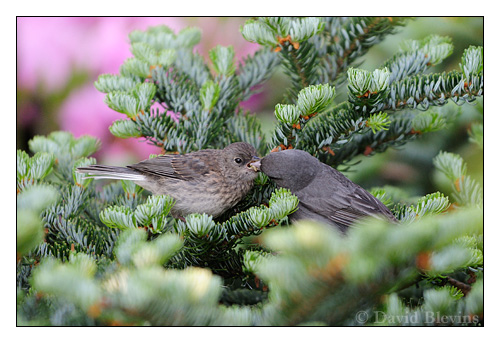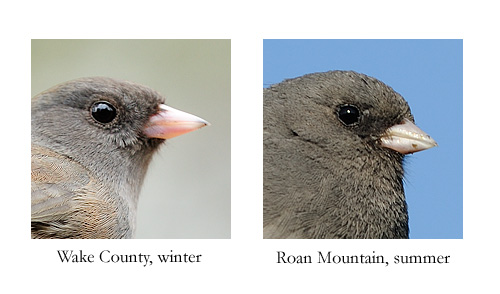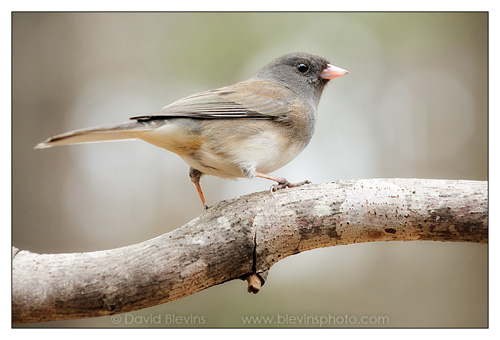I’ve been very busy lately putting the finishing touches on the new book. What little time I have had for photography has all gone into improving images for the book or creating images we realized we needed as the last details came together. The book content is all wrapped up now and it looks like everything is on schedule for spring 2011 publication. We also have a title, Wild North Carolina: Discovering the Wonders of our State’s Natural Communities.
Animals are an important part of natural communities but including them in the book was a challenge. Not just because they are difficult to photograph but because they tend to move around the landscape, making it difficult to associate an animal with a specific natural community.
At first glance the Dark-eyed Junco might seem like an unlikely candidate for including in the book. Juncos are common birds seen across North Carolina in winter. They migrate here from their breeding grounds in New England and Canada and can be found in many different natural communities as well as lawns and at feeders.
But there is a subspecies of Junco called Junco hyemalis carolinensis that breeds in the high mountains of the Southern Appalachians and does not migrate like the more commonly seen juncos from the north.

Adult Carolina Junco feeding a fledgling in the Roan Highlands.
The Carolina Junco breeds in the spruce-fir forests on top of high mountains and migrates down slope for winter. Carolina juncos are the only juncos here in the summer, but you can distinguish them from their northern relatives in winter by their stouter white bill.

Bill differences between juncos that migrate to North Carolina for winter and those that breed in the high mountains of North Carolina.

